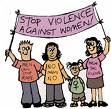Chinese South Africans want to be black. The local Jewry is being lured into emigration. Hellenism is in decline, while many Portuguese immigrants are looking north - again. But that isn't stopping wealthy Britons from investing their cash in our property. And the number of African migrants, rich and poor, was rising - until a fortnight ago.
We're an immigrant nation. People have always come and gone. There has been a rush of new blood during every economic surge. Now there is conflict, so the emigrant exodus is as much calculated among the affluent as it is bloody among the impoverished.
In the lawless reaches of some of Gauteng's informal settlements and poorest townships, crises have been common for decades for black migrants.
There are untamed corners where criminals have long raped, robbed and murdered Mozambicans, Malawians, Angolans and Zimbabweans.
White descendants of immigrants, who feel out of control and are considering emigrating because of crime in the suburbs, may not realise the hell of a place like Ramaphosa, outside Reiger Park in Ekurhuleni. Most are, like other South African whites, barricaded behind home security systems and reliant on the quasi-paramilitary for their peace of mind.
A Mozambican man - a painter by trade - was set alight in Ramaphosa last Sunday. By Saturday, a week later, scraps of his clothing, his sneakers and the duvet which was thrown over him before he was set alight are scattered in the thick white dust where he lay burning.
After days of frenzied arson attacks, the settlement itself is marked by blackened heaps of rubble and flying ash between the shacks shared between black and coloured residents.
Urban locations such as Ramaphosa have long attracted African migrants with no means of setting themselves up in more salubrious circumstances. But settlements such as this are often far enough away from the nearest police station, distant enough from a main road, to nurture a rugged resistance to authority.
It was that - a rugged, disdainful resistance - that marauders showed 12 days ago when they bludgeoned a hole in our precarious human rights record and rampaged through Alexandra and Diepsloot, setting off the xenophobic violence that has destabilised the province and threatens the entire country.
Once, white immigrants traded in the central business district. Now it is the domain of Asian immigrants and asylum-seeking entrepreneurs: Bangladeshis, Pakistanis and Indians who have become terrified of their itinerant status and the stain their success has brought.
As some Asian residents of the CBD said this week, it has seemed to them for a while as though anything would be enough of a catalyst for the dirty urban battle over turf to begin in the country.
The instability in Zimbabwe has been contagious, say community policing forums in places such as Reiger Park. They claim they warned politicians a long time ago about the threat of ethnic cleansing.
Just weeks ago, there were hints of this when police raided the Central Methodist Church in Johannesburg, beating up and arresting mainly Zimbabwean immigrants who had sought refuge there.
Now that Alexandra, Diepsloot, Princess, Ramaphosa, Rondebult and many other places have seen burning, looting, beatings and death, President Thabo Mbeki says we must pledge to take action.
He has sent in the army. But human rights groups remain shocked by the lack of alacrity from the country's leadership on the perils of immigration and, in particular, of being a black foreigner.
Anyone who is surprised by the xenophobia of the past fortnight is either naive or disingenuous. Thousands here have lost their homes and possessions. Even the tragedies unfolding daily in the high-density areas of Harare are looking like a safer option to the hundreds who boarded trains and buses and fled the brutality.
In Zimbabwean writer Charles Mungoshi's book, Coming of the Dry Season, an old man speaks to his son: "Come back where? Nobody comes back to ruins. You will go on, son. Something you don't know will drive you on along deserted plains, past ruins and more ruins, on and on until there is only one ruin left: yourself."
White immigrants remain protected. Not from crime, perhaps, but certainly from this desolation. For decades, laws protecting whites cushioned white immigrants while the situation of black migrants unfolded in anarchy. There is still no sustainable policy.
At a time of desperate unemployment here, many South African poor are uneasy about competition for housing and income with immigrants. Few seem to view foreigners as enhancing our society, so there is ambiguity in the response of those whose communities have shuddered over the past week.
The ruthless reduction of shacks and people in some townships and informal settlements has indeed been shocking. Mass expulsions, burning houses, looted possessions and the devastation of the identity of thousands who saw themselves, in many ways, as South African, should provoke our public outrage.
Studies show that, for instance, as many as 70 percent of Mozambicans living in their own country have family here.
Now white immigrants are also feeling the sting: their families in Portugal, Greece, Italy and Britain want them to come "home".
Asians say they are protecting themselves by binding tighter into their own communities. They speak about African precedents, such as Uganda in the early 1970s when Idi Amin expelled the entire Asian population, which numbered tens of thousands of people. Studies show that although Uganda today has a substantial Asian community again, not many are "returnees". It is first-generation entrepreneurs who now settle in Kampala.
South Africans seem to lack an assimilative disposition.
A woman in the Rondebult settlement in Ekurhuleni this week offered the opinion that the only people who matter in South Africa are Xhosas and Zulus. Another said the only people who are not immigrants are those with Bushman ancestry. "Even you, you're immigrants," the women said. "White English people come from overseas."
But the roughly 2 million white English-speaking South Africans - most of whom can trace their ancestry to the influx of British immigrants of the 1820s - are the least affected by the discrimination that has happened throughout South Africa this year.
Immigration has been poorly handled by successive leaders in this country, particularly when it has concerned cheap labour. The horrors experienced by the early indentured Asian work force bear testimony to this, as does the sweat of African labourers who were allowed in as clandestine immigrants to appease white capitalists and farmers.
Greek, Italian, Portuguese and Jewish immigrants settled within the law, albeit within their enclaves. White South Africans, for all their claims to hospitality, have long been guilty of closing ranks.
Greeks were regarded as little more than the café-owning class by many English-speaking whites, and Portuguese traders were marginalised as vegetable traders - not quite in the same league. Many who were at schools in Gauteng in the 1970s and 1980s will remember the rumours about white trash when the children of British immigrants arrived in their classrooms.
Many white South Africans seem startled by the numbers of black refugees and would-be immigrants who have crossed our borders in recent years; the only explanation for that response is the racially exclusive immigrant legislation that existed before 1994.
Although black people from Zimbabwe and Zambia had the same skills as whites from these countries, the National Party sought to bolster its constituency and invited only white migration from these countries as early as the 1960s.
Laws such as the Land Act of 1913 precluded black people from ownership, but people from Southern Africa have long been arriving here in large numbers. Even though some entered legally as contract workers, they were barred from residence.
Despite being discriminated against in terms of property ownership under the National Party, Jewish South Africans were living here in numbers before that. By 1867 and the discovery of diamonds in Kimberly, they were already integrated into our culture.
Jews have a proud anti-apartheid history, the terrors of Nazi Germany integral to their consciousness. But lately, many are considering leaving.
This is also true of Greek South Africans, whose numbers are falling - mostly, it seems, because of fears of crime and perceptions of the shifting nature of our future.
Their flight troubles those who hope to preserve Hellenism on this continent, to the extent that its most illustrious protagonist, George Bizos, the human rights lawyer, has been driven to urge loyalty to the country where the first Greeks arrived in the late 1800s.
Yet it is perhaps Chinese South Africans - who could not vote before 1994 - who are experiencing difficulties of exclusion and isolation which perhaps best approximate those of many African migrants.
Their campaign to be recognised as black even took them to the high court a few years ago, when the Chinese Association of South Africa sought a declaratory order to be able to benefit from employment equity and black economic empowerment.
Colour apparently forever our yardstick, Chinese immigrants in South Africa still fall into a grey area.
Meanwhile, we must contemplate the awful cost of hate that is still being tallied up for those who long to live here.
( Janet Smith , Sunday Independent on May 25, 2008 )




































